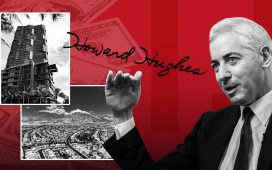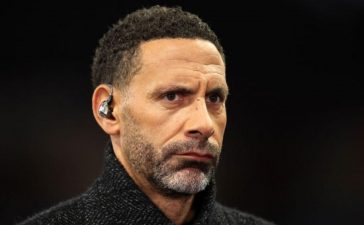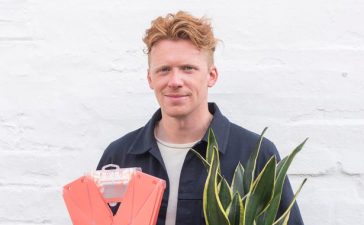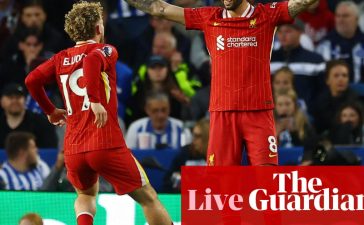The property tycoon Nick Candy is locked in a bitter legal dispute with a former business partner in which they have traded allegations about each other’s conduct and financial worth.
The Tory donor’s firm Candy Ventures Sarl (CVS) is pursuing a claim for alleged fraudulent misrepresentation against the social media company Aaqua and its boss, Robert Bonnier. Bonnier was once seen as one of the City’s hottest young entrepreneurs as chief executive and founder of online business directory Scoot, which was valued at more than £2bn at the height of the dotcom boom but ended up being bought out for £5m.
CVS is suing Bonnier, who was handed a then record fine in 2004 for misleading the stock market, claiming it was induced to invest in Aaqua on the basis of his representations that Apple and LVMH were also about to put their own money into the company. The deal involved CVS investing in Aaqua by transferring shares owned by Candy in Audioboom to Aaqua in return for shares issued by Aaqua in itself.
Candy, who is married to the former Neighbours actor Holly Valance, said he had reported Bonnier to the Financial Conduct Authority (FCA), the Serious Fraud Office (SFO) and the FBI over the allegations, which are denied by Bonnier. The Dutchman has brought a counter-restitution claim after sweeping freezing orders were wrongly granted against his and Aaqua’s assets.
So-called worldwide freezing orders, which apply not just in the UK but globally, were once described by a judge as “nuclear weapons of the law”. Aaqua and Bonnier claim the orders had a “catastrophic impact”, causing the loss of 160 jobs and €195m (£170m), which they are seeking to recover from Candy and his venture fund.

Lawyers for CVS have apologised for “misleading information” provided when obtaining the freezing orders and acknowledged they were “wrongly granted” but reject that the orders caused the losses incurred or that they were as large as claimed.
The orders were granted after CVS’s lawyers indicated it held £13.8m of shares in Audioboom, which could be sold if the defendants were deemed to have suffered unfair losses as a result of the freezing orders. However, it was discovered the shares had already been pledged as security to Bank of Singapore for a loan on property so could not be freely disposed of.
Candy, who unsuccessfully bid for Chelsea football club last year, remortgaged his penthouse in One Hyde Park, which he developed with his brother, Christian, to Bank of Singapore in 2020. The penthouse became Britain’s most expensive home when he bought it from himself for £160m.
When it emerged the shares were pledged elsewhere, Candy Ventures offered to put up a £10m bank guarantee as “fortification” to maintain the freezing orders. When it did not provide the guarantee, the deadline was twice extended. On the second occasion the judge directed Candy to personally pay £1.5m to be held to the order of the court. When he did not do so, the freezing orders lapsed, five weeks after they were first granted.
According to a court transcript seen by the Guardian, Stephen Robins KC, acting for Aaqua and Bonnier, told the high court last year: “It cannot be right for the claimant to get the freezing orders unfortified at the outset by misstating the position, to then string them out by promising fortification, and then to decide unilaterally in its own self-interest to break the promises that it has made.”

In response, Alec Haydon KC, for Candy Ventures, said the figure put on Aaqua’s losses had been arrived at on a “spurious basis” and that it was a commercial decision not to provide the guarantee, because, based on information provided by the defendants, there were “no assets effectively to freeze”.
Robins told the court that, at the hearing at which the freeze was granted, CVS was said to have had €400m to €500m of assets but claimed that, based on information provided by Candy himself, the true amount was less than €200m and there were “staggering liabilities” on its balancing sheet.
Haydon said Candy’s assets “do not really arise for consideration” in the case. A source close to Candy said he was a successful entrepreneur, CVS invested in a number of startup and early stage tech businesses and any suggestion of “staggering liabilities” demonstrated a lack of understanding when compared with the value and equity in those assets.
after newsletter promotion
In a statement, CVS said the freezing orders were granted “based on the indisputable evidence of Mr Bonnier’s lies, deception, and dealings with Audioboom shares.
“Candy Ventures Sarl took a commercial decision not to post additional security and to release the [freezing order] when it was disclosed that there were no assets to freeze, making the freezing order worthless. The decision was fully explained to the judge who accepted the position.

“The additional allegations from Mr Bonnier that Candy Ventures Sarl misstated the value of its assets to obtain the [freezing order] are entirely false and were not accepted by the judge. They were merely designed to distract the court’s attention from the allegations of massive investor fraud against Mr Bonnier, who is yet to file a defence to these claims.”
“Candy Ventures Sarl’s well-evidenced claims of fraudulent misrepresentation, investor fraud, and Audioboom share price rigging by Mr Bonnier remain in place. Mr Bonnier has now been reported to the FCA, the SFO, the FBI and other authorities across multiple jurisdictions.”
Bonnier’s adviser Joel Hogarth of Eliot & Luther said: “CVS was a sophisticated investor who did due diligence and negotiated representations and warranties. They are not alleging breach of the documents they signed but some nebulous ‘fraud’ claims.
“After rejecting a good faith offer to buy their shares for more than twice their initial investment, CVS aggressively sought a [worldwide freezing order], which was obtained on misleading information and which CVS subsequently admitted to be wrongly granted. Aaqua fundamentally rejects all allegations against it and will actively pursue its claim for the damage caused.”










